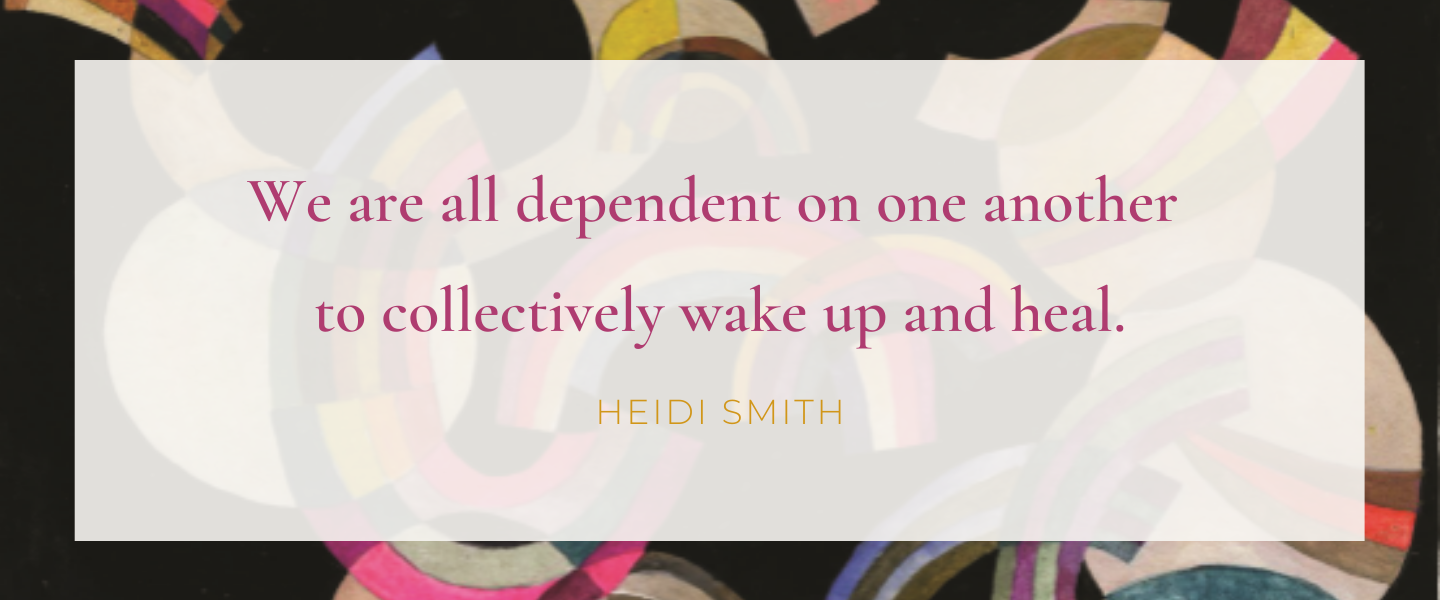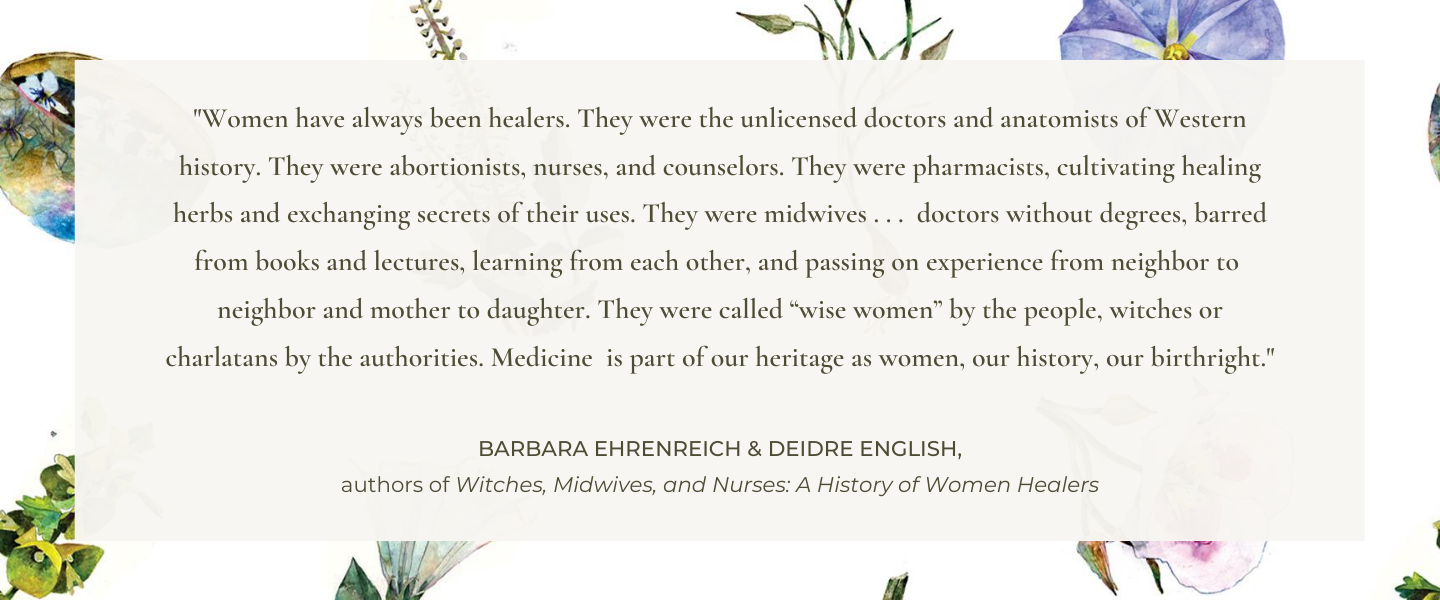-
E107: Becoming Okay Inside
Michael Singer — August 28, 2025
The fundamental spiritual question is not “How do I be okay?” It is “Why am I not okay?” Our ...
-
Andrew Holecek: What Reincarnates? | Part 2
Andrew Holecek — August 26, 2025
Join Tami Simon and Andrew Holecek for the second half of their exploration of reincarnation. Here,...
-
Honey Tasting Meditation: Build Your Relationship with Sweetness
There is a saying that goes “hurt people hurt people.” I believe this to be true. We have been...
Written by:
Amy Burtaine, Michelle Cassandra Johnson
-
Many Voices, One Journey
The Sounds True Blog
Insights, reflections, and practices from Sounds True teachers, authors, staff, and more. Have a look—to find some inspiration and wisdom for uplifting your day.
Standing Together, and Stepping Up
Written By:
Tami Simon -
The Michael Singer Podcast
Your Highest Intention: Self-Realization
Michael Singer discusses intention—"perhaps the deepest thing we can talk about"—and the path to self-realization.
This Week:
Andrew Holecek: What Reincarnates? | Part 2 -
Many Voices, One Journey
The Sounds True Blog
Insights, reflections, and practices from Sounds True teachers, authors, staff, and more. Have a look—to find some inspiration and wisdom for uplifting your day.
Take Your Inner Child on Playdates
Written By:
Megan Sherer
600 Podcasts and Counting...
Subscribe to Insights at the Edge to hear all of Tami's interviews (transcripts available, too!), featuring Eckhart Tolle, Caroline Myss, Tara Brach, Jack Kornfield, Adyashanti, and many more.
Most Recent
Sah D’Simone: Becoming Spiritually Sassy: Awaken...
Sah D’Simone is a spiritual guide, meditation teacher, transformational speaker, and bestselling author. Born in Brazil, Sah moved to the US when he was 16. Today, he leads a heart-based healing movement rooted in tried-and-true techniques, pioneering a spiritually sassy approach in which joy and authenticity illuminate the spiritual path. In this podcast, Sah speaks with Sounds True founder Tami Simon about his new book, Spiritually Sassy: 8 Radical Steps to Activate Your Innate Superpowers. Tami and Sah also discuss: the importance of reclaiming beauty, playfulness, and lightheartedness on the spiritual path; what it means to be a “joy activist”; Sah’s journey to becoming a spiritual teacher; the innate goodness within each one of us; forgiving the past; the evolution of Indian teachings in the West; the “spiritually sassy” glossary of terms; and much more.
W. Keith Campbell: The New Science of Narcissism
Dr. W. Keith Campbell is a social psychologist and professor in the Behavioral and Brain Sciences Program at the University of Georgia. Best known for his research and writing on narcissism, Dr. Campbell is the author of several books including The Handbook of Narcissism and Narcissistic Personality Disorder, When You Love a Man Who Loves Himself, The Narcissism Epidemic, and a new book with Sounds True, The New Science of Narcissism: Understanding One of the Greatest Psychological Challenges of Our Time―and What You Can Do About It. In this podcast, Sounds True founder Tami Simon speaks with Dr. Campbell about the latest scientific understanding of narcissism and its various forms, the spectrum of narcissism and Narcissistic Personality Disorder, the “big five” personality traits and the importance of balance, the malleability of our personalities and the possibility for change, and more.
Plants, People, and Cosmic Balance: A Healing Justice ...
Plant medicine has always been the people’s medicine, and flower essences create unique opportunities for issues surrounding accessibility, as essences are extremely safe and can be made rather inexpensively. The shift toward holism—complementary and alternative medicine (CAM) and integrative medicine—and the proliferation of herbal interventions within our health-care system are proof that we are making progress. In light of this, there are a number of dynamic ways we can promote flower essences to be even more accessible and inclusive for people. Even flower essence therapy itself is a modality historically dominated by white men, but increasingly it is being pushed forward by women-identified, LGBTQIA+, and BIPOC healers.
Currently, the alternative healing community is processing its own biases. Much of alternative medicine was developed in the service of the dominant culture, or the patriarchy. Therefore, it hasn’t been a healing space for many groups, including but not limited to women, people of color (BIPOC), LGBTQIA+, people with disabilities, economically oppressed people, neurodiverse people, and (in the United States) non-native English speakers. In the words of Cara Page, a founding member of Kindred Southern Healing Justice Collective, healing justice “identifies how we can holistically respond to and intervene on generational trauma and violence, and to bring collective practices that can impact and transform the consequences of oppression on our bodies, hearts, and minds.”

One of the main themes of The Bloom Book involves balancing duality, which means challenging the perpetuation of oppressive systems. Unless we are actively engaged in dismantling racism, sexism, homophobia, transphobia, xenophobia, and ableism, we are merely reinforcing the power structures we are claiming to challenge. As models of healing justice are emerging, many organizations and community collectives are generating their own missions and value statements from which to work. Meanwhile, practitioners—especially white practitioners like me—have to ask ourselves:
How is my work a function of my privilege?
Where can I be doing better?
Does my practice truly support inclusivity, diversity, and accessibility?
The working definitions of healing and trauma are also evolving. Within a healing justice framework, one can see how, by understanding trauma merely as “an emotional response to a terrible event,” we are ignoring a more inclusive interpretation that includes the cumulative and historical trauma of colonization. In the last decade, science has validated that trauma is intergenerational and historical. Likewise, many traditions include community in what constitutes emotional and spiritual healing, whereas Western models of mental health are focused exclusively on the individual self.
When you open yourself up to the plant kingdom, new awareness can develop. You can become more empathic, which sounds pleasant in theory, but can be overwhelming because now you’re not just experiencing more of your own feelings, but the feelings of others as well. If you’re committed to applying a healing justice framework in your work, you will likely expose new trauma and have to reckon with your own privilege, which can be painful. You could develop more attunement with nature, which also can feel wonderful and, because of the tragic state of our Earth, completely disorienting. At this time, we are experiencing a heightened polarity between the light and the dark. We are being asked to hold a neutral space for all this duality and to have more compassion for all life. Flower essences enhance the energetic interconnection between all living things and so are especially well suited to support an expansion of consciousness.
Understanding how we function within—and our responsibility to—the collective is important because none of us operates alone. If you forget what you derive from the collective, you assume you don’t owe it anything and exist separately from everyone. Much of the privileged world enjoys the benefits of being part of the collective, whether we are conscious of it or not: rights, amenities, protection, accessible health care, clean drinking water, electricity, and so on. So, those with the material upper hand at this time have a special responsibility to the rest of those sharing the Earth.
Within a healing justice framework, we must not only question our privilege as white people, we must elevate BIPOC leadership within all the transformative justice movements. We are all dependent on one another to collectively wake up and heal.

In this way, it is an exciting time for the community of herbalists and flower essence practitioners. Modalities that are so helpful in bringing people into balance are themselves coming into greater balance. A sign of hope within an era of great hope. The ancient wisdom explored in The Bloom Book supports that the power of the plants is coming through in dynamic new ways. This text exists, in part, to provide more context around the validity and potency of the flowers. The spectrum of human emotional experience is here for our development and delight.
The Absence of Women-Identified, WOC, and QTBIPOC Healers Throughout History
Missing from our Western history books are most of the contributions by women-identified healers through the ages. Even more scarce are WOC, and most scarce are queer and trans people of color (QTBIPOC) within the codex of Western medical history. The misogyny of the burgeoning patriarchy from ancient Greece spread throughout Europe, Africa, the Americas, and the rest of the world through colonization by white settlers. The suppression of women healers in Europe and the Americas coincided with the rise of the ruling class, capitalism, and the privatization of medical care, away from folk-healing traditions—traditions that women played a huge role in preserving and advancing. Gender seemed to be less of a construct throughout many parts of the ancient world, as there are significant written reports of intersex and gender-fluid healers. In many cases, those who exhibited androgyny were known as having special healing powers because of their ability to connect with both masculine and feminine energy.

As historical contexts are becoming more inclusive and less Eurocentric, there is more room for the theory around matriarchal-centered civilizations being much more prominent than previously thought. Senegalese anthropologist and historian Cheikh Anta Diop felt that, historically, most of Africa was matriarchal in organization. Colonizers were tremendously misogynistic, which holds much information for us to ponder as we consider our connection to the feminine and the history of medicine.
The lack of representation of women and WOC healers in the historical literature of medicine is decidedly a Western trait. Not only is much history transmitted orally and through practices and traditions, but the written history is also a very biased account, formulated in large part by, and for, white men. While our participation in medicine and healing traditions has been historically restricted in the West, women have long been associated with healing, especially within the domains of life and death—as midwives and compassionate caregivers helping to bring new life and support the soul into the afterlife. Women healers have traditionally addressed the issues and needs of populations that our culture typically shames and would rather ignore. Written accounts are limited, but we do have a record of a talented few. We must honor the oral traditions that are not meant to be shared (by me anyway) with the mainstream. There is a protection in keeping knowledge hidden from the masses. This wisdom is secured within the light lineage of all healers.

Conclusion
The social and healing justice movements have affected me deeply, and it is my sincere hope that we can continue to decolonize and dismantle where dominant systems are limiting the positive proliferation of alternative healing and flower essence therapy to make them more accessible and inclusive. The more we come into balance in this way, the more transformation is available to us all, our communities, and our Earth—and the more we maintain plant medicine as medicine for all people.
Healing Justice Flower Essence Allies
There are a number of herbalists such as Karen Rose of Sacred Vibes Apothecary, Jennifer Patterson of Corpus Ritual (also a Bloom Book contributor), Lauren Giambrone of Goodfight Herb Co., and Amanda David of Rootwork Herbals, (to name a few), who have been speaking on the subject of healing justice for quite some time, and I am grateful for their leadership and inspiration. Healing justice business models such as that of Third Root, a worker-owned community center that provides collaborative, holistic health care in Brooklyn, offers a standard that everyone in the healing arts should aspire to.
I offer some essences below that are wonderful to use in process groups or healing circles that center on antiracism and anti-oppression work. Some flower allies to assist you as you dig deeper into this rich and rewarding terrain are:
Delta Gardens lemon balm—a wonderful essence for when you are immersed in deep work, to keep calm and carry on
Delta Gardens valerian—for any resistance to change, to be able to take in and assimilate new information
Flower Essence Society quaking grass—“harmonious community consciousness,” letting go of personal attachments in social groups
Flower Essence Society lupine—seeing beyond the level of self, seeing self as part of the whole
Flower Essence Society or Delta Gardens echinacea—integration of those parts of the self that may have been repressed
Flower Essence Society or Delta Gardens borage—to support the heart and offer courage
Bach Original Flower Remedies water lily—for humility and wisdom in communication, to heal the perceived separation we feel from others based on race, class, or gender
Flower Essence Society pink yarrow—for emotional vulnerability, assists in discerning what is your responsibility to emotionally process
Additional Information on Healing Justice
A Not-So-Brief History of the Healing Justice Movement, 2010-2016
What Is Healing Justice?—Healing by Choice Detroit
Healing Justice: Holistic Self-Care for Change Makers—Transform Network

Heidi Smith, MA, RH (AHG), is a psychosomatic therapist, registered herbalist, and flower essence practitioner. Within her private practice, Moon & Bloom, Heidi works collaboratively with her clients to empower greater balance, actualization, and soul-level healing within themselves. She is passionate about engaging both the spiritual and scientific dimensions of the plant kingdom, and sees plant medicine and ritual as radical ways to promote individual, collective, and planetary healing. She lives in Brooklyn, New York, with her partner and two cats. For more, visit moonandbloom.com.
Learn More
Sounds True | Amazon | Barnes & Noble | Bookshop
Customer Favorites
Topophilia: A Love and Appreciation for Where We Live
Topophilia
Rewilding allows you to see your environment with new eyes, sometimes as if for the very first time. You become more intimate with all its life-forms and sometimes see beyond the visible, connecting with a greater spirit, or presence. In his book The Nature Principle, Richard Louv discusses “place blindness,” which afflicts people who live so much of their lives indoors or in front of screens that they do not look up to see the land they live on. As with a psychological state such as inattentional blindness or perceptual blindness, these people do not perceive what is right in front of them, whether that is a horizon, a rock, a landscape, or a tree. Whether they are overwhelmed, overstressed, or preoccupied by other stimuli, in effect they become sealed off from the elements, the seasons, and the real world of the living earth, and they lose out on the benefits of a vibrant and reciprocal relationship with nature.
Because place blindness inevitably leads to a disconnection with the living earth, it also leads to a lack of caring and interest in the planet’s well-being. Future generations will not value and care for the earth if they have little or no actual relationship with it. People will not work to reverse climate change if they are so rarely outside that they have no embodied experience of its reality. So how do we overcome place blindness? We embrace mindfulness and take it outside with us. The more time we spend out on the land, exploring and learning about the different plants and animals, the natural history and ecology, and simply enjoying and getting to know the contours of the living earth, the more bonded we’ll feel to the places we call home. The more intimate we become with the land, the more we’ll grow to love and cherish it. The word land can be a vague, general term, but as you get to know a place, you discover its individuality, its individual trees, stones, birds, and landmarks. Walking along a favorite trail as the months and years go by, I watch little saplings grow. As you walk, I encourage you to bring your full, penetrating awareness to the reality of life as it is. This kind of intimacy with place is as natural as can be. We’ve lost it only in the last hundred or so years. But we can get it back and be enriched again.
Some call this love of land topophilia. Every spot on a map has a unique quality and personality. Bioregionalism is a movement that seeks to understand the watersheds, geography, ecology, natural history, human history, and other layers of knowledge that make up the richness of a place. Climate change compels us to become more bioregional so that we can address some of the nasty repercussions of a society crumbling under the compounding costs of extreme weather events, food production problems, mass migrations, rampant pollution, and social strife.
Stewardship begins with you and me.
Tips for Overcoming Place Blindness
- Walk outside. Whether you live in a populated neighborhood or in a more isolated area, walk outside every day. While you walk, open your senses, connect with your breath, and pay attention to movement on the land and in the sky.
- Become an amateur naturalist. Learn about the trees, plants, animals, insects, and other features of the land where you live. Use field guides to learn what trees grow near your home. Learn about the wild edibles that grow near you. Pay attention to the birds. Are there watersheds nearby? Where does the water flow from? Where does it flow to?
- Join local organizations that support the land. Make friends with local conservation, land management, and other environmental organizations that are active in your area. Perhaps there are walking or hiking groups, foraging clubs, craftspeople, or other groups you can learn and explore with.
- Limit your screen time. When you are outdoors, set a strong intention to experience the earth directly through your own senses. Silence your phone and put it away. Resist the urge to capture everything with a picture and instead take mental pictures of what you see. Practice letting go of the need to document every experience. See if you can reconnect with what it is like to experience life. Slow down and notice, as if for the very first time.
This is an excerpt from Rewilding: Meditations, Practices, and Skills for Awakening in Nature by Micah Mortali.


Medicine Meets Meditation – with Drs. Andrew Wei...
Dear friends, enjoy this short exchange between Drs. Andrew Weil and Jon Kabat-Zinn on medicine and meditation. Jon and Dr. Weil have published a fascinating audio program with Sounds True entitled, “Meditation for Optimum Health: How to Use Mindfulness and Breathing to Heal Your Body and Refresh Your Mind.”
Andrew Weil: I’ve always been interested in the fact that there is a linguistic link between the words “meditation“ and “medicine.“ Both of them arise from a Sanskrit root that also has given us the English word “measure.“ And while it’s impossible to pin down the exact meaning of that ancient Sanskrit root, it seems to have to do with thoughtful action to establish order. Implied is a sense of some kind of active process: it’s work-action of some sort with a goal in mind, and the goal is creating order. So medicine and meditation are both different expressions of that kind of process in different realms.
Jon Kabat-Zinn: Adding to what Dr. Weil has said, I believe the common root “to measure“ has something to do with the platonic notion of “right inward measure.“ And so medicine is the restoring of right inward measure or order when our health is disturbed in some way. And meditation is, in my mind, the direct perception of right inward measure.
Sounds True: Is there specific evidence that meditation can impact health?
Andrew Weil: There actually has been a great deal of medical research on the health benefits of meditation. One of the researchers who has established a reputation in this area is Herbert Benson at Harvard Medical School. Years ago, he described what he called “the relaxation response,” which was a set of physiological changes correlated with a particular type of meditation, namely transcendental meditation, which involves repetition of a mantra. And the typical changes that were seen were a slowing of heart rate, a slowing of respiratory rate, and a decrease in blood pressure. So I think in very simple terms, meditation is a way of engaging the relaxation response, a way of decreasing chronic, nervous driving of the cardiovascular and digestive systems.
Jon Kabat-Zinn: When we’re so busy, running here and there, that can be tremendously problematic in terms of our overall health—mental, physical, psychological, and spiritual. When we get really driven on automatic pilot, trying to get someplace else all the time, without being attentive to where we already are, we can leave a wake of disaster behind us in terms of our own health and well-being, because we’re not listening to the body, we’re not paying attention to its messages; we’re not even in our bodies much of the time.
Mindfulness—paying attention on purpose in the present moment nonjudgmentally—immediately restores us to our wholeness, to that right inward measure that’s at the root of both meditation and medicine.
More from Meditation for Optimum Health
The same ability that helps ordinary men and women achieve extraordinary success is also the secret to optimizing your life span, letting go of stress, and even enhancing your body’s self-healing powers.
In Meditation for Optimum Health, you will join bestselling authors Dr. Andrew Weil and Dr. Jon Kabat-Zinn for a practical introduction that makes it simple to enjoy the life-changing benefits of meditation even if you’ve never tried it before.
How does meditation work? Can anybody do it? What do I need to get started? Is it religious? Does it have the power to heal? In alternating sessions, Dr. Weil and Dr. Kabat-Zinn give you straight answers to the most common questions about meditation, and dispel the myths and misconceptions surrounding this time-honored practice.
By learning to cultivate the power of your attention through daily practice, you can harness the full potential of your mind, and use it to enrich every dimension of your life. You will learn how meditation can actually unify your mind and body’s many related functions and help you start enjoying the best health of your life.
Complete with real-life examples, and a proven program of step-by-step meditations to get you started, here is the perfect introduction to the oldest and most effective system for feeling better, naturally: Meditation for Optimum Health.

Letting Go of Shame, with Rick Hanson
For many, shame is one of the most difficult emotions to work with. It is so pervasive in contemporary life, yet it is often hidden underneath layers of more “obvious” sorts of feelings and emotions like rage, sadness, anger, and despair. Sounds True author and dear friend Dr. Rick Hanson, organizer of The Compassionate Brain free online video series, has spent decades studying shame, self-worth, and self-acceptance, as a neuropsychologist and as a psychotherapist working with clients.
Additionally, Rick is the author of a number of audio learning programs, each of which offers simple guided meditations to open you to your true nature – that of a happy, content, aware, alive, and loving human being.
To help you begin to let go of the shame you may be carrying, Rick has put together the following simple, yet very effective guided exercise. We hope that you find it helpful. If you’d like to read more about Rick’s work in the area of shame and self-acceptance, you are welcome to read his article, “From Shame to Self-Worth.”
Guided Exercise – Letting Go of Shame
Imagine that you are sitting beside a powerful river on a beautiful sunny day. You feel safe and contented and strong.
Imagine that sitting with you is a wise and supportive being. Perhaps someone you know personally, perhaps a historical figure, perhaps a guardian angel, etc. Know in your heart that this is a very wise and honest and caring being.
Imagine a small boat tied to the bank of the river, there near you. Imagine an empty and open box in the boat that you can reach easily. Alright.
Now, continuing to be centered in feelings of worth and well-being, bring to mind lightly something you are ashamed of. Represent it, whatever it is, as a small object on the ground in front of you.
Imagine that the being is telling you, or that you are telling the being, some of the many causes and conditions that led to that thing you are ashamed of. You don’t need the whole story; often a few seconds in your imagination can summarize the heart of the matter.
With that summary of the causes of the shame, see if you can feel a letting go inside.
If you like, in your imagination, bow to the object representing the shame: it exists, it is what it is.
Then put the object in the box, and let it go as much as you can.
Now bring to mind, lightly, something else you are ashamed of. Represent it, whatever it is, as a small object on the ground in front of you.
I’ll be repeating the instructions, and feel free to go at your own pace, slowing down to dwell on certain parts, or speeding up to get through them to additional things you’d like to put in the boat.
[Repeat as many times as you like.]







